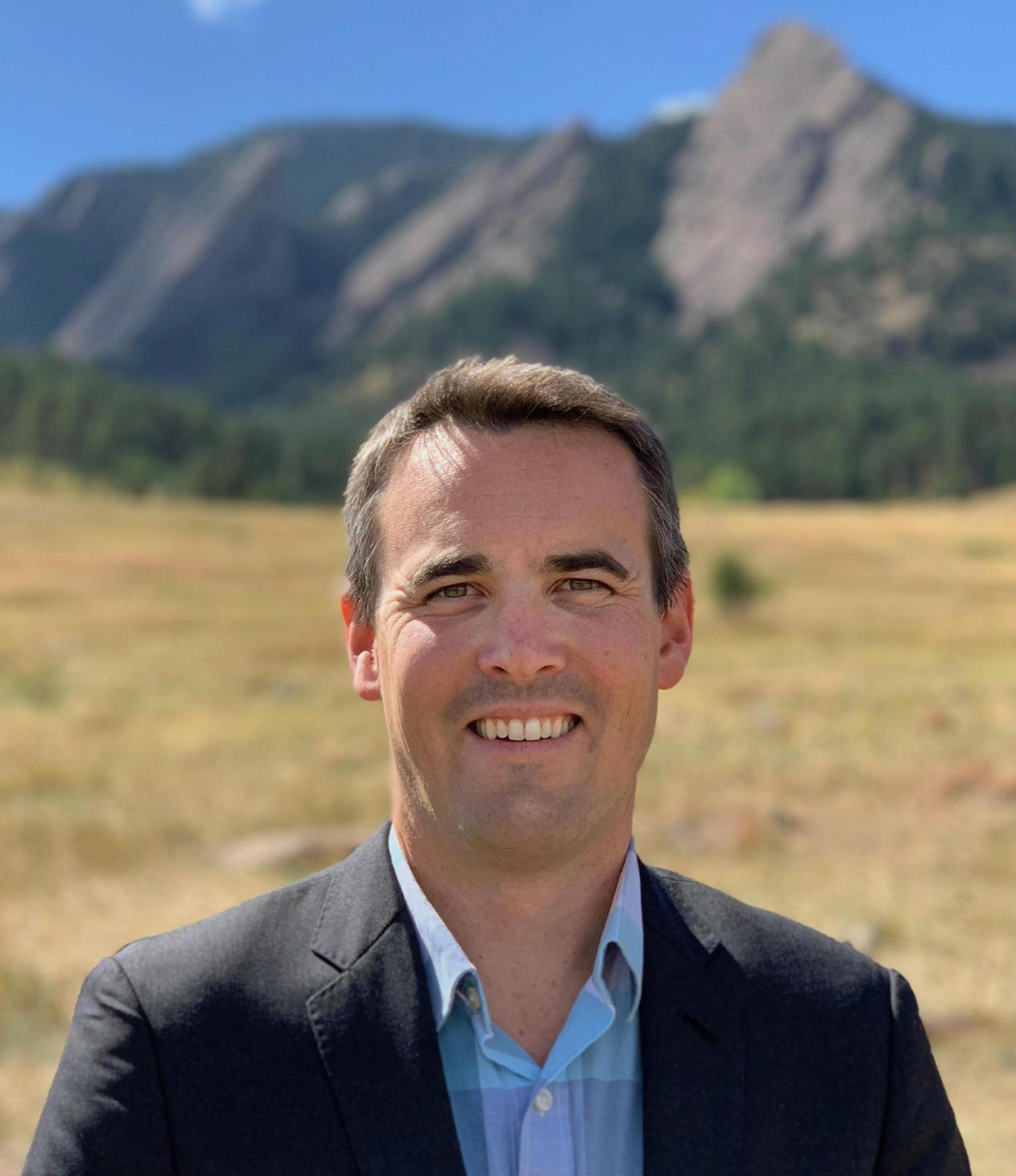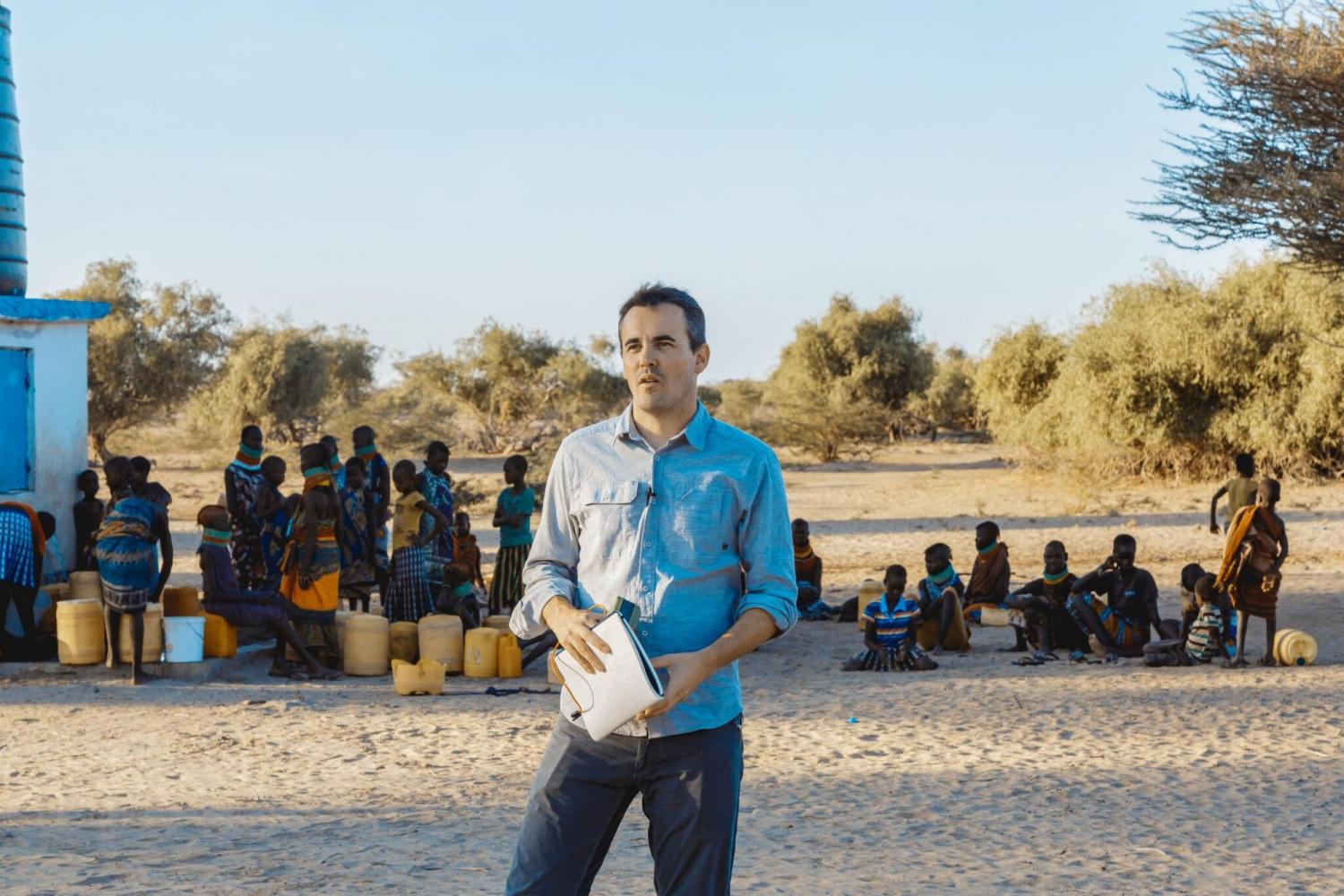Professor Evan Thomas Interview
My favorite thing about being a professor in engineering at CU is supporting our students who are working in dozens of countries around the world, helping to positively impact millions of people with improved access to water, sanitation, energy and infastrucure.

Associate Professor and Mortenson Center Director
MORTENSON CENTER IN GLOBAL ENGINEERING • ENVIRONMENTAL ENGINEERING
ethomas@colorado.edu
Website
I'm a proud alumnus of CU Engineering, and leading the Mortenson Center in Global Engineering is a privilege and an opportunity to grow CU's impact globally.
My technical background is in water and air testing and treatment applied in emerging economies through to operational spacecraft. I first got to Boulder in 2001, as a freshman in Aerospace Engineering and Broadcast Journalism, and finished my PhD in Aerospace in 2009 with Professor Dave Klaus. Along the way, I got involved with Engineers Without Borders-USA, founded here at CU by Civil Engineering Professor Bernard Amadei. These experiences kicked off my dual career path of being an aerospace engineer as well as a international development professional.
I worked at the NASA Johnson Space Center in Houston for six years, as an aerospace engineering designing and managing water and air management systems for the International Space Station and conducting research in microgravity fluid management and water recovery. I was then an assistant and associate professor at Portland State University in Mechanical Engineering, and at the Oregon Health and Science University in Public Health.
Along the way, I founded two companies that work in global development. SweetSense Inc. is currently supported by USAID and the National Science Foundation to develop and apply satellite connected sensors monitoring drinking water systems. Daily, our team is monitoring millions of people’s water supply across east Africa.
My favorite thing about being a professor in engineering at CU is supporting our students who are working in dozens of countries around the world, helping to positively impact millions of people with improved access to water, sanitation, energy and infastrucure. Our students are developing professional experience, and many go on to become leaders in global engineering.
What classes do you teach?
I teach undergraduate and graduate courses in Global Engineering, which includes introductions to technologies like remote sensing and instrumentation, water filters, cookstoves, methods including impact evaluations and project management, and exposure to the fields of global health, development economics and social enterprise.

The Mortenson Center engages in Global Engineering and combines education, research, and partnerships to positively impact vulnerable people and their environment by improving development tools and practice. Our vision is a world where everyone has safe water, sanitation, energy, food, shelter, and infrastructure.
What are some of the global challenges that engineers are facing? What is the MCEDC’s role in addressing these?
There are still a billion people who lack access to safe drinking water, two billion without safe sanitation, and half the world's population still uses firewood for their basic energy needs. These challenges can be addressed through a combination of engineering, public health, policy, and governance. Engineers have a critical role to play in improving access to these basic services.
Please describe your teaching philosophy. What do you want students to take away from your classes?
My classes and research team are impact oriented. We study and help develop best practices in global engineering, develop and validate technologies, methods and work in partnership with communities, organizations and governments around the world.
What are some current projects that graduate students in your research group are working on? How does their research supplement their experience at CU?
Currently, my students are developing microbial water quality testing sensors, applying remote sensing to forecast drought in east Africa, working with governments and communities to reduce downtime of water infastrucure, monitoring indoor air quality and providing feedback to households to help change cooking behaviors, and conducting an impact evaluation of the health and economic benefits of pedestrian footbridges. My students spend months every year in Rwanda, Ethiopia, Kenya, and Sierra Leone working with our staff and partners.


